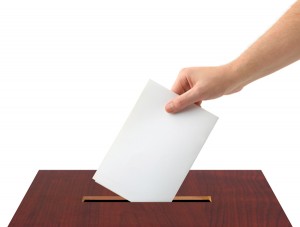 By Steve Brawner, © 2018 by Steve Brawner Communications, Inc.
By Steve Brawner, © 2018 by Steve Brawner Communications, Inc.
It was a good night for Gov. Asa Hutchinson – actually, a good two days.
On Monday, he visited the White House, where President Trump sent a tweet endorsing him and praising him for his “incredible job.” Then on Tuesday, Hutchinson won almost 70 percent of the vote in an election he said was “about the soul of the Republican Party.”
He now enters the general election campaign with a huge fundraising lead and a huge advantage having “Gov.” in front of his name and “R” behind it.
Meanwhile, Tuesday saw the defeats of two of his least favorite legislators, Sen. Bryan King, R-Green Forest, and Sen. Linda Collins-Smith, R-Pocahontas. Both oppose his Arkansas Works health program and oppose him at other times, too – King especially and vocally and sometimes not nicely. They were defeated by Republicans much more agreeable to Hutchinson: King by Rep. Bob Ballinger, R-Berryville, and Collins-Smith by Rep. James Sturch, R-Batesville.
Here are some other observations following Tuesday’s results.
– The primaries were further evidence that no blue wave is swamping Arkansas this year. There were two special elections Tuesday where Republicans and Democrats faced each other, and neither were close. In Senate District 16 in the Russellville area, Republican Breanne Davis won 77 percent of the vote. Meanwhile, Republican Ricky Hill won 81 percent in Senate District 29, which includes parts of Lonoke, White, Faulkner and Pulaski counties. Local dynamics matter and so do the candidates, of course, but Democrats are supposed to benefit from an “enthusiasm gap” this year. They surely didn’t in those two districts.
– Money matters, as if we all didn’t already know, but maybe not exactly how we might think. The leading Arkansas Supreme Court candidate was Justice Courtney Goodson, who also was the one attacked most relentlessly by out-of-state-funded ads and mailers. She was followed by David Sterling, whom those ads were intended to benefit. The third candidate, Judge Kenneth Hixson, was attacked but not as relentlessly. Make of that what you will, but perhaps the onslaught of publicity elevated Goodson. My neighbor thought one of the mailers was pro-Goodson until he looked at it more closely. Meanwhile, maybe the more limited attacks on Hixson were enough to drag him down. Or maybe he just became the odd man out.
– Your one little vote matters too. In House District 90, Rep. Jana Della Rosa, R-Rogers, unofficially defeated her opponent by three votes. In House District 91, Rep. Dan Douglas, R-Bentonville, unofficially defeated his by 12.
– Finally, voter turnout in primaries continues to disappoint, or at least disappoint me. In an election where both parties were selecting their gubernatorial candidates, and three of the four congressional districts had contested races, and everyone was voting for a Supreme Court justice, less than 19 percent of registered voters went to the polls.
That’s about 326,000 people out of 1.75 million registered voters, with hundreds of thousands more Arkansans not even registered. And that’s despite having more than two weeks to vote and being free to vote in either party’s primary. All voters had to do was present a driver’s license or other I.D.
What’s wrong with low voter turnout, as long as 326,000 are still participating? For many races in many places, the primary is the deciding election, and the general election in November is a formality. In low turnout races, a small percentage of Arkansans are making decisions for the rest. Certain groups of people (richer, older, white) tend to have greater participation than others (poorer, younger, minority). Those who do show up to vote in primaries tend to be more partisan than the general population, which is reflected in the officials who are elected and the way they govern afterwards. Ever wonder why Congress is stuck in gridlock? Low voter turnout in party primaries is one of the reasons.
A representative democracy won’t survive if citizens stop believing in it. When it matters so little to so many, it makes it more likely that eventually it will slip away.
Anyway, I’ll shut up about the whole thing. If most people didn’t want to vote in the primary, then they probably don’t want to read about it, either.
Steve Brawner is a syndicated columnist in Arkansas. Email him at brawnersteve@mac.com. Follow him on Twitter at @stevebrawner.
Those rich, white, older voters vote in their interests, while the minorities and the single mothers, the poor – don’t vote. And in RED states, if they vote, they vote against their own interests. I’ve voted in every election since 1968, but I’m white, well educated, and a social worker. I stay informed (and read Steve Brawner, John Brummett, Max Brantley, and the newspapers cover to cover daily so I am a minority). We have declined for so many generations in informed electorate that at this point I do not expect change. There are many of us working in voter registration, working to get people to the polls, working to educate the voters about the issues – but we can only be personally involved with a small fraction of the population.